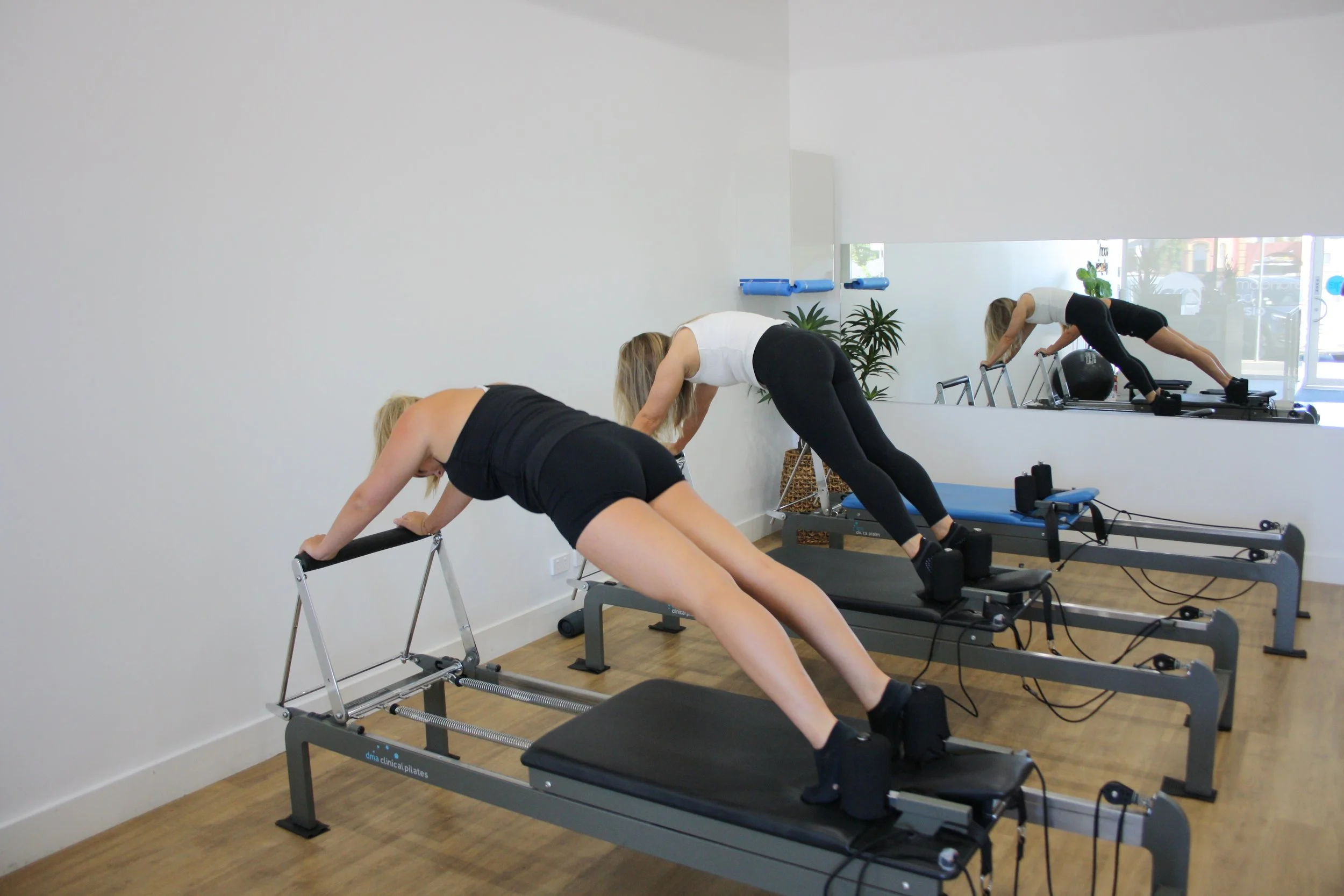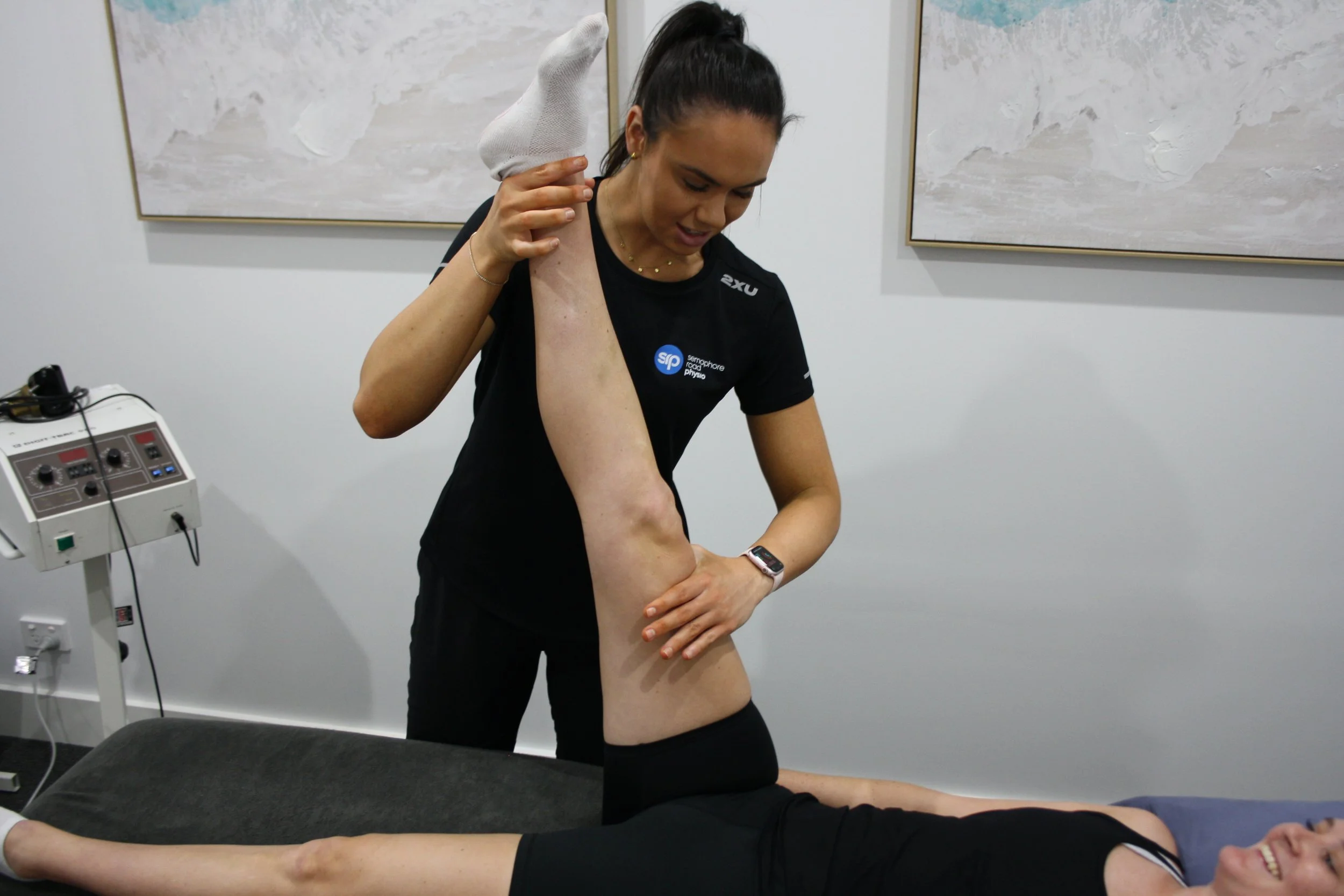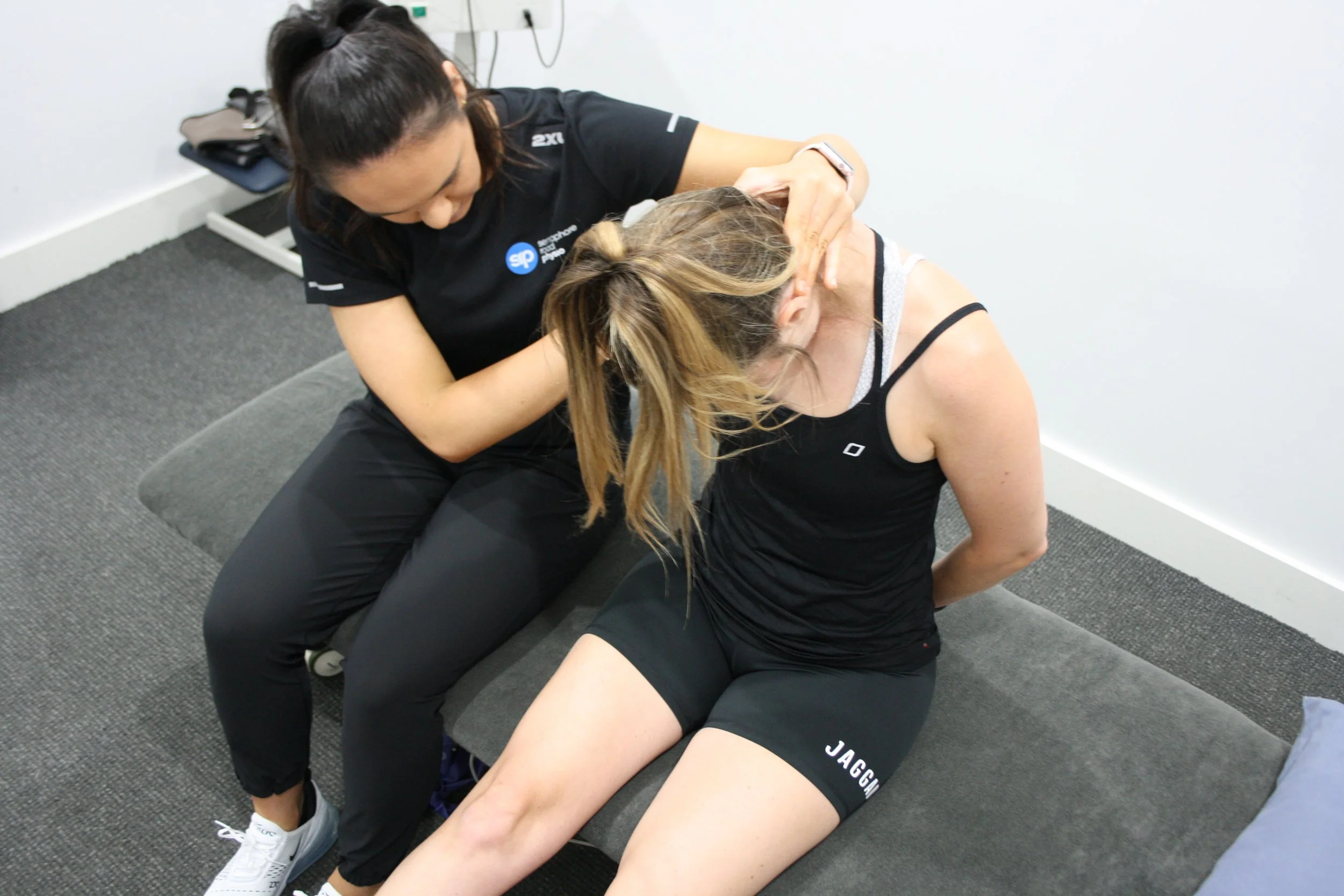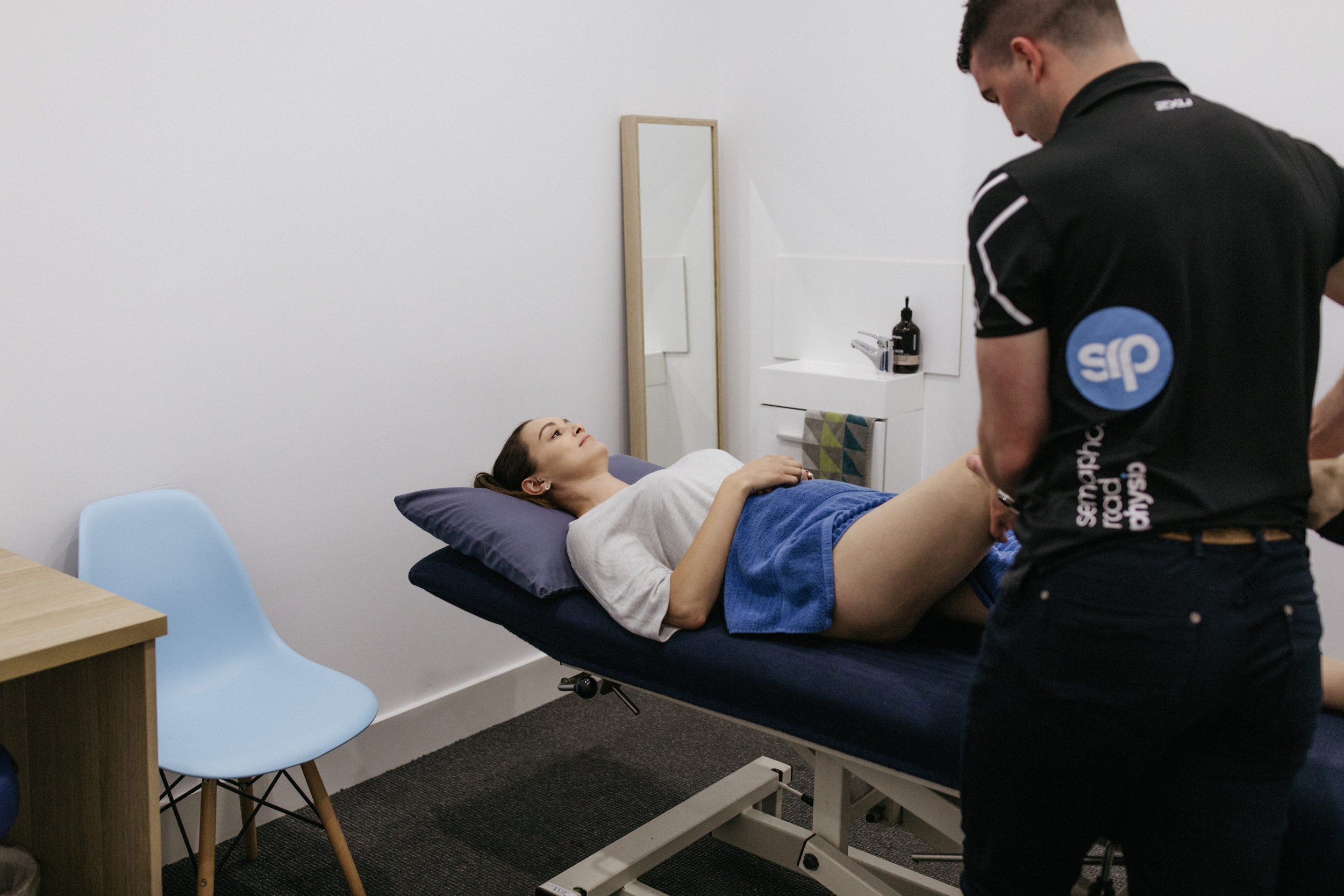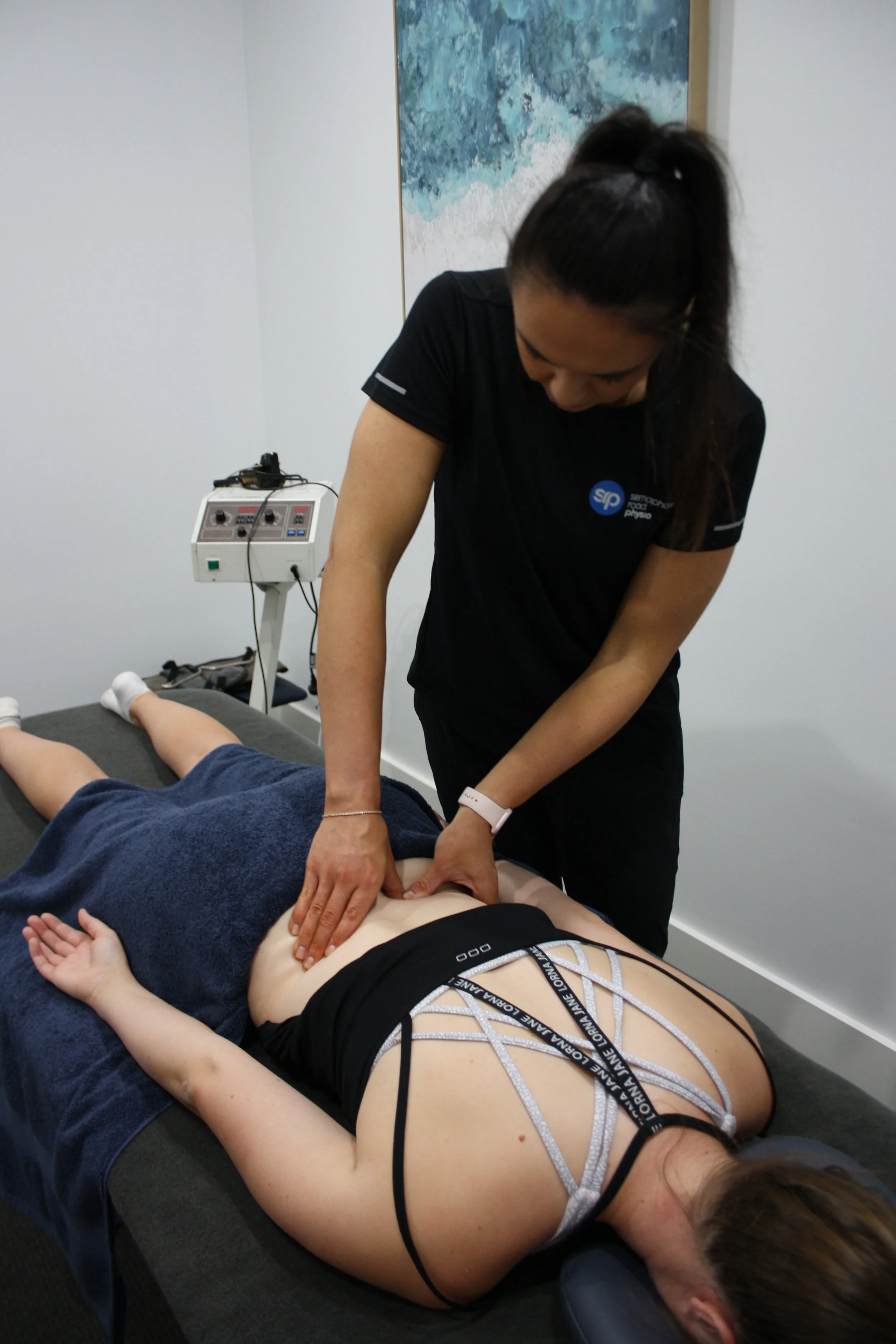
Women’s Health Physiotherapy
About Women’s Health Physiotherapy
A Women’s Health Physiotherapist is a qualified Physiotherapist with additional training and a special interest in female pelvic health. We support women through all stages of life — from adolescence to post-menopause — helping manage a wide range of conditions that affect the pelvic floor, bladder, bowel, and musculoskeletal system.
Our focus is to empower and educate women supporting them to achieve their highest quality of life through supporting their health, lifestyle, and wellbeing goals with confidence and care.
Do I need a GP or doctor referral to see a Women’s Health Physiotherapist?
Nope! Anyone can see a Women’s Health Physiotherapist!
Women’s Pelvic Health Physiotherapy supports, strengthens, and restores confidence—helping women move, feel, and live better.
What can a Women’s Health Physiotherapist help with?
We understand pelvic health is both complex and personal. That’s why we offer a safe, compassionate, and confidential environment where you can feel comfortable discussing your concerns.
For many women who visit a Women’s Health Physiotherapist – they may have some obvious signs and symptoms. Although some women don’t have any symptoms of pelvic floor dysfunction, but they may be interested in learning more about factors that can impact the pelvic floor, and how to best protect their pelvic floor for the future.
Some of the pelvic health concerns that people may see a Physiotherapist to discuss include:
-
Anal fissures & haemorrhoids
Anal pain & dyschezia (difficulty with defecation)
Constipation
Defecation Disorders
Faecal Incontinence
Obstetric Anorectal Injuries
-
Bladder Pain Syndrome
Increased Urinary Frequency
Interstitial Cystitis
Overactive Bladder (OAB)
Straining to empty the bladder
Urinary Incontinence (stress, urge, or mixed incontinence)
Urinary Retention
Urinary Urgency
-
Conservative management including pelvic floor muscle training and lifestyle and bowel/bladder management advice
Guidance and advice on safe return to exercise and daily activities
Facilitation of return to exercise through individualised prolapse-safe exercise programs
-
Burning or Irritation
Dyspareunia (pain or discomfort during intercourse)
Frequent Urination
Genitourinary Syndrome of Menopause (GSM)
Recurrent UTIs (Urinary Tract Infections)
Urinary Urgency
Vaginal Dryness
-
Chronic Pelvic Pain
Coccyx (Tailbone) Pain
Dyspareunia (pain during or after intercourse)
Endometriosis-related Pelvic Pain
Genitopelvic pain
Penetration Disorder
Vaginismus (involuntary tightening of vaginal muscles)
Vulvodynia (chronic vulvar pain)
-
PRE NATAL:
Birth preparation education
Management of pelvic floor symptoms during pregnancy (e.g., incontinence, prolapse)
Perineal massage instruction and treatment
Postural advice
Pre-Natal pelvic floor risk assessment
Pregnancy-related pelvic girdle and back pain management and treatment
Safe exercise guidance and prescription throughout pregnancy
POST NATAL:
Pelvic floor assessment and rehabilitation
Abdominal Muscle Separation (DRAM) assessment and treatment
Guidance on safe return to exercise
Postnatal musculoskeletal pain (e.g., lower back, hips, wrists) assessment and treatment
Recovery support after vaginal or caesarean births
Scar management (e.g., perineal or C-section scars) advice and treatment
Bladder or bowel dysfunction following birth assessment
Prolapse education and management
Breastfeeding-related conditions (e.g., mastitis, blocked ducts) treatment

